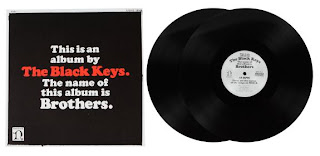Conor Oberst sits in Slowdown's back stage area. (Photo by Alyssa Schukar/The World-Herald)
"Hi, I'm Conor," he said, sticking out his hand.
Before getting down to business, someone brought Oberst an iced soy latte and we talked about last weekend's show with Rage Against the Machine and the Mellotron that he and Mike Mogis bought for their studio, ARC.
It's the first time he's talked to The World-Herald since he gave an interview to us about his free Memorial Park concert way back in 2006.
So, why talk to us now? Oberst's show, the Concert For Equality, is coming Saturday and he's pretty pissed about the immigration law in Arizona and another one a little closer to home in Fremont. Maybe you've heard about it.
We sat with Oberst for awhile and talked. Here's all of what he had to say (a fully unadulterated Q&A) about immigration, Saturday's concert, the press and his bands and their futures.
Kevin Coffey: There are plenty of worthy causes in the world, why did you choose this one?
Conor Oberst: I guess there's a lot of things that brought me to it. First, spending a lot of time in Mexico and having a lot of people that mean a lot to me both in Mexico and people that have moved here from there.
Also, there's a woman from Omaha here that's good friends with my mother who - about 2 years ago. Long story short, she came here when she was 16. She lived here for 23 years. She has three daughters and because of some bad legal advice - both her three daughters and her husband got their citizenship in the 80s - she went backt o Mexcio to attempt to re-0enter the country lawfully and she's been told she can't re-enter for 10 years.
And, to me, that blows my mind. I don't see how that serves society. I don't see any justice in that. I don't see the way - I don't see what the point is of that. Her daughters are still close to my family and spend time with us and they miss their mother, you know? I guess those are things that, I guess, where my interest started, I suppose.
KC: This whole thing seems really personal to you.
CO: Yeah, it is very personal. To me, it's a human rights issue. It's about dignity.
(To the photographer) I'm sorry. Maybe not. I just get distracted.
Sorry, what were you saying?
KC: With the show on Saturday, was it hard to get people to participate or were they jumping on board?
CO: No. I went out publicly with it with just Lullaby For The Working Class, Cursive, Desaparecidos, Cursive and Bright Eyes because there was a timing issue and we had to get it announced and let people know it was going on. I wanted it to happen as soon after the ordinance was passed as possible.
It was really encouraging because I haven't gotten that many e-mails, phone calls and texts from friends who wanted to be involved, you know? A lot of them said, "I'd love to play, but I'll also volunteer to do anything to help with the day," so that made me very happy.
KC: As someone who's popular or a celebrity, do you feel like you have an obligation to speak out against stuff like this?
CO: I think it's an individual choice for everyone. I mean, it's not something I started doing. It's something that I grew into doing. It's not something I enjoy doing actually, to be honest, but occasionally I feel compelled to speak out on certain issues that are close to me, that I feel passionately about. This is one of those times.
It's such a dangerous situation, what's happening with this kind of legislation. In my view, the law is immoral, it's un-American, it's unconstitutional, it's unenforceable, it's hurtful, it's hateful, it's racist and it's going to create far more problems than it's going to solve. It's going to create racial tension in Fremont and across Nebraska. It makes anyone that has brown skin or speaks with an accent, it makes them an object of suspicion first and a person second.
To me, if we don't stand up now and say to Fremont and say to Arizona, "This is unacceptable. This is not America." To me, being an immigrant is the most American thing you can be and it's our duty to defend this vulnerable section of our society and that's what I'm doing. That's what I'm trying to say.
KC: You had the open letter to Charlie Levy and an Arizona paper called you out and asked if Nebraska passed a law similar to Arizona, would you really boycott your state? Is that something you would be willing to do?
CO: Yes, and you can quote me on that.
KC: So, why get Desaparecidos back together at this point? Just to make it a bigger draw or to bring more attention to the event?
CO: The Desaparecidos idea occurred first. We haven't played in eight years and it seemed like an appropriate time to play again. A lot of issues are what we were singing about, what the band's about. It seemed like a chance to do something good and hopefully effect some kind of good change, but also to play music again.
I called them all up and within a half hour they were on board. That was great.


















